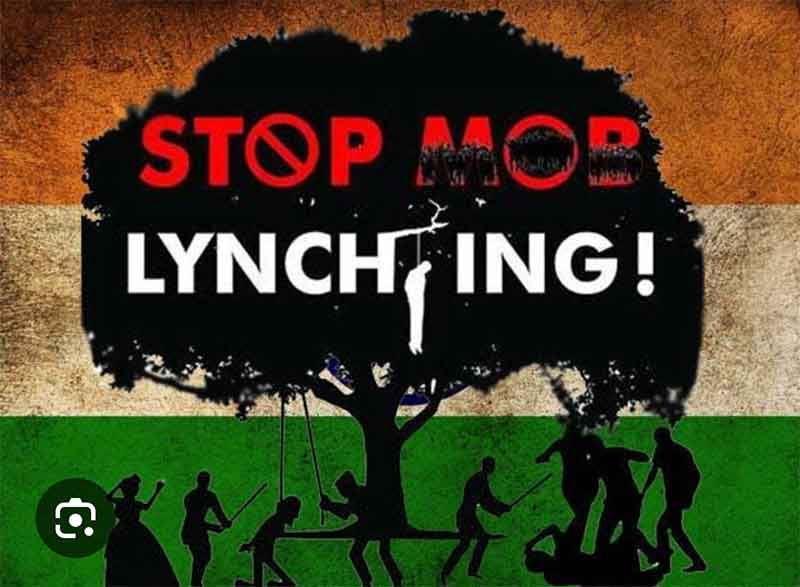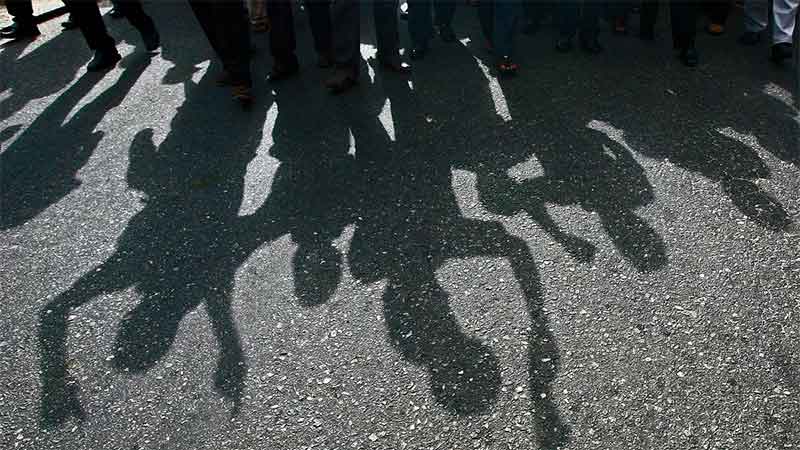
On the 4th of June, the results of the Lok Sabha elections were declared. The BJP-led NDA won the elections; however, it was not as convincing a victory as the exit polls had predicted — the resurgence of I.N.D.I.A with 235 seats dampened the celebrations. Even though the Congress-led alliance could not secure a majority, their performance was markedly impressive. It was a source of joy and exhilaration among the much-demonized seculars and liberals. They hoped that the fascist onslaught that the country had suffered over the past ten years would finally abate, even if temporarily. Among other things, it was expected that the attacks on Muslims — which had become all too commonplace — would stop, as the secular parties would be better poised to challenge the communal forces.
However, merely one month after the results, the picture looks gloomy. Ever since the results were declared, there has been a deluge of violence against Muslims. In Raipur, three Muslim men were branded as cow smugglers and mercilessly killed by Hindutva vigilantes. In Aligarh, a Muslim man was beaten to death merely on the suspicion of theft. Similarly, in Madhya Pradesh, eleven houses of Muslims were bulldozed after alleged reports of ‘beef’ being found in their refrigerators. In Himachal Pradesh, the shop of a Muslim man was vandalized by Hindutva goons on the accusation that he had sacrificed a cow during Eid-al-Adha.
Amidst this communal frenzy, the reluctance of Congress to speak out against the hate crimes perpetrated against Muslims has been painfully disappointing. Except for the communist parties, there has been a deafening silence from other political parties. Indian Muslims who voted overwhelmingly for the secular parties have been abandoned for the sake of what congress supporters call — political pragmatism. This is not only morally repugnant, but, contrary to what the ‘pragmatists’ are given to thinking, it is also politically inexpedient.
First, this position accords too much significance to the electoral appeal of ‘Hindutva’ than what is due. Of course, the election results should not be read as a moral repudiation of Hindutva by the masses, but, simultaneously, what must be kept in mind is that they also made it abundantly clear that the more immediate and tangible issues faced by the masses can also be viable rallying points. Furthermore, the intricate and multifaceted caste dynamics — which liberal elites considered electorally obsolete — are still pertinent and heavily influence Indian elections. Along with the pompous chest-thumping of Hindutva, what was also defeated was the pervasive sense of cynicism and defeatism of the liberal elites.
Apart from that, this myopic view fails to understand the class and caste nuances of communalism. According to data published by the CSDS-Lokniti survey, a significant 60% of upper-caste voters overwhelmingly supported the BJP and its allies. In states such as Uttar Pradesh, Rajasthan, Madhya Pradesh, and Karnataka, this voting pattern was even more palpably manifest, where 79%, 65%, 72%, and 71% of upper caste votes, respectively, backed the party.
Besides, communalism finds its most receptive audience in the middle classes, who for a plethora of factors such as economic anxieties, social aspirations, and desire for security and stability, are particularly prone to communal tendencies. This is not a recent phenomenon. Bipin Chandra, in his masterly treatment of communalism, brilliantly argues that the social roots of communalism can be traced to the economic dislocations caused by the advent of colonial rule. The middle classes were particularly vulnerable to these economic anxieties as they were compelled to compete with each other for limited resources and opportunities in a stagnant economy. In the quest for security and advancement of individual interests, they began to use sectional groupings. Furthermore, the frustration and constant fear of loss of identity created an environment conducive to the rise of hate and violence, which when sparked by a religious issue culminated into religious violence. Thus, the middle class — petty bourgeoisie, to be more precise — has, historically, been the vanguard of communalism.
The voting pattern makes it abundantly clear that the upper caste, middle-class voters would vote for BJP, come what may. For them, no matter how much Rahul Gandhi and other secular leaders pose as devout Hindus, they will remain anti-Hindu, thanks to a well-oiled propaganda machinery that pumps an unfathomable amount of misinformation on a daily basis. Under these circumstances, the ambivalent and cavalier stance of the opposition on the issue of Muslims being attacked is difficult to understand.
Subscribe to Our Newsletter
Get the latest CounterCurrents updates delivered straight to your inbox.
The social and ideological base of the secular parties has shifted towards lower caste and lower class voters. With a solid electoral footing, they are well-equipped to launch an active campaign against the hate and division prevalent in society. Bipin Chandra argues that one of the reasons why communalism burgeoned in the country before independence was that a vast majority of the populace did not have voting rights; only a small elite class of Indians was enfranchised. Therefore, the congress could not afford to alienate this ‘middle class’. Even Jawahar Lal Nehru, Chandra writes, believed that Congress would have been able to combat communalism if its social base lay in the lower classes.
Today, the Congress and other secular parties are not faced with the dilemma that Nehru was. Upper-caste, middle-class voters are the most loyal vote bank of the BJP-led NDA. The Congress cannot change the way this section feels about the party by maintaining silence over the attacks on Muslims. Therefore, the stance adopted, purportedly, for political expediency is anything but that. In fact, this silence will only serve to alienate Muslims, who despite Congress’ ambivalences and inconsistencies, vote for them. In order to challenge the hegemony of the BJP in a substantial manner, the Congress needs to build a counter-hegemonic force on a moral, political as well as ideological level. Such a pursuit requires them to be courageous and take a morally principled stance on secularism and other pressing questions of social justice. The much-touted Mohabbat ki Dukan, as it currently stands, remains closed for business; it needs to be opened.
This article has been written by Shashi Singh. He is an independent researcher and writer based in Delhi, India.















































